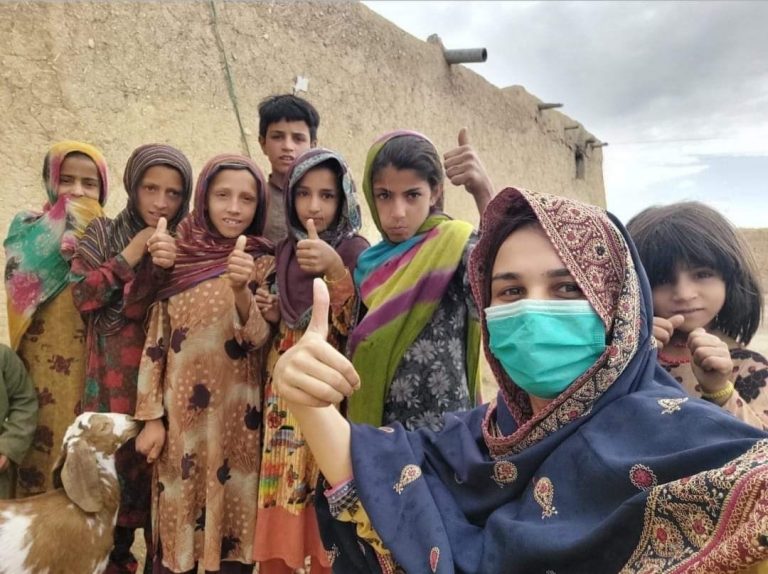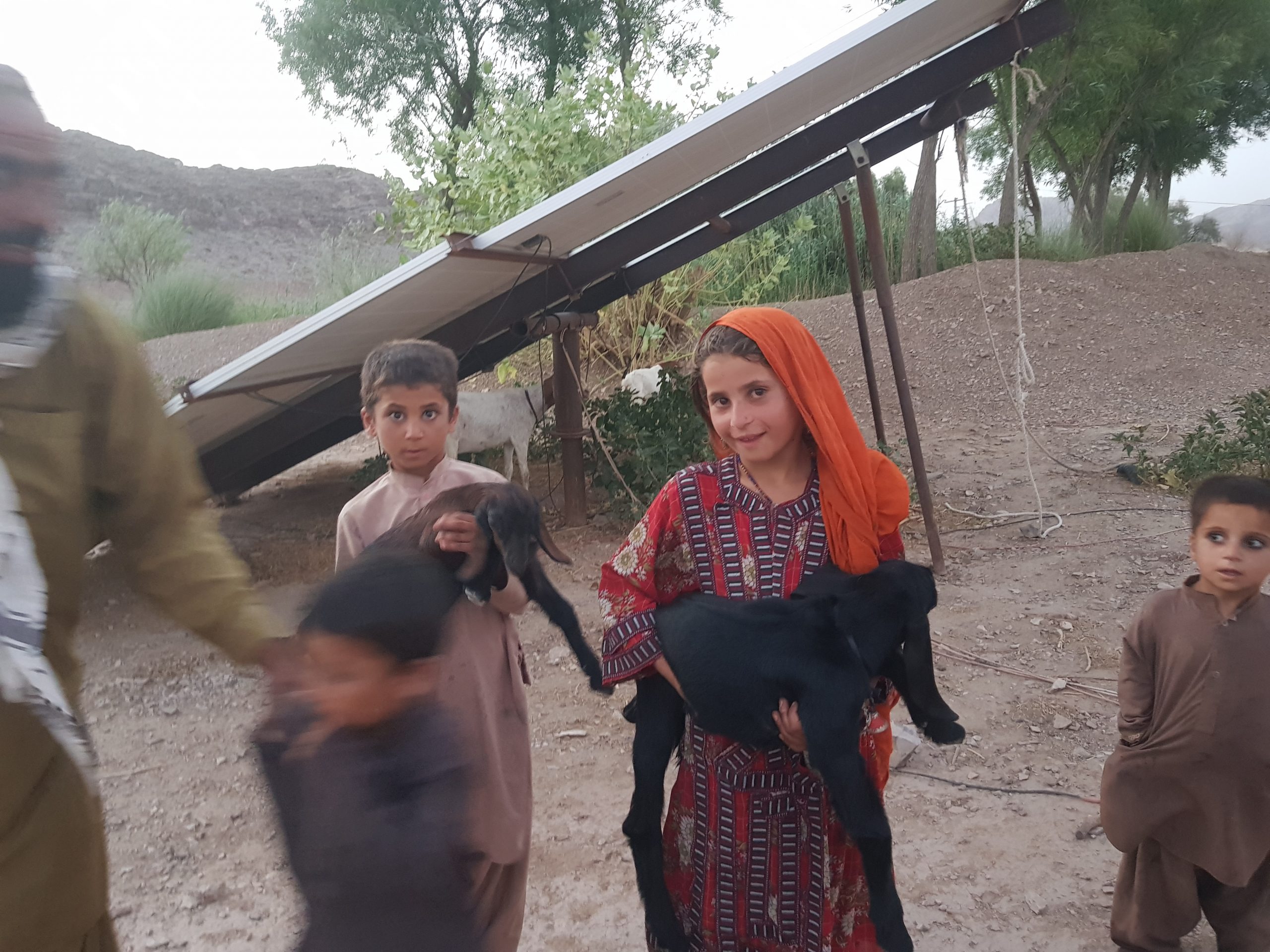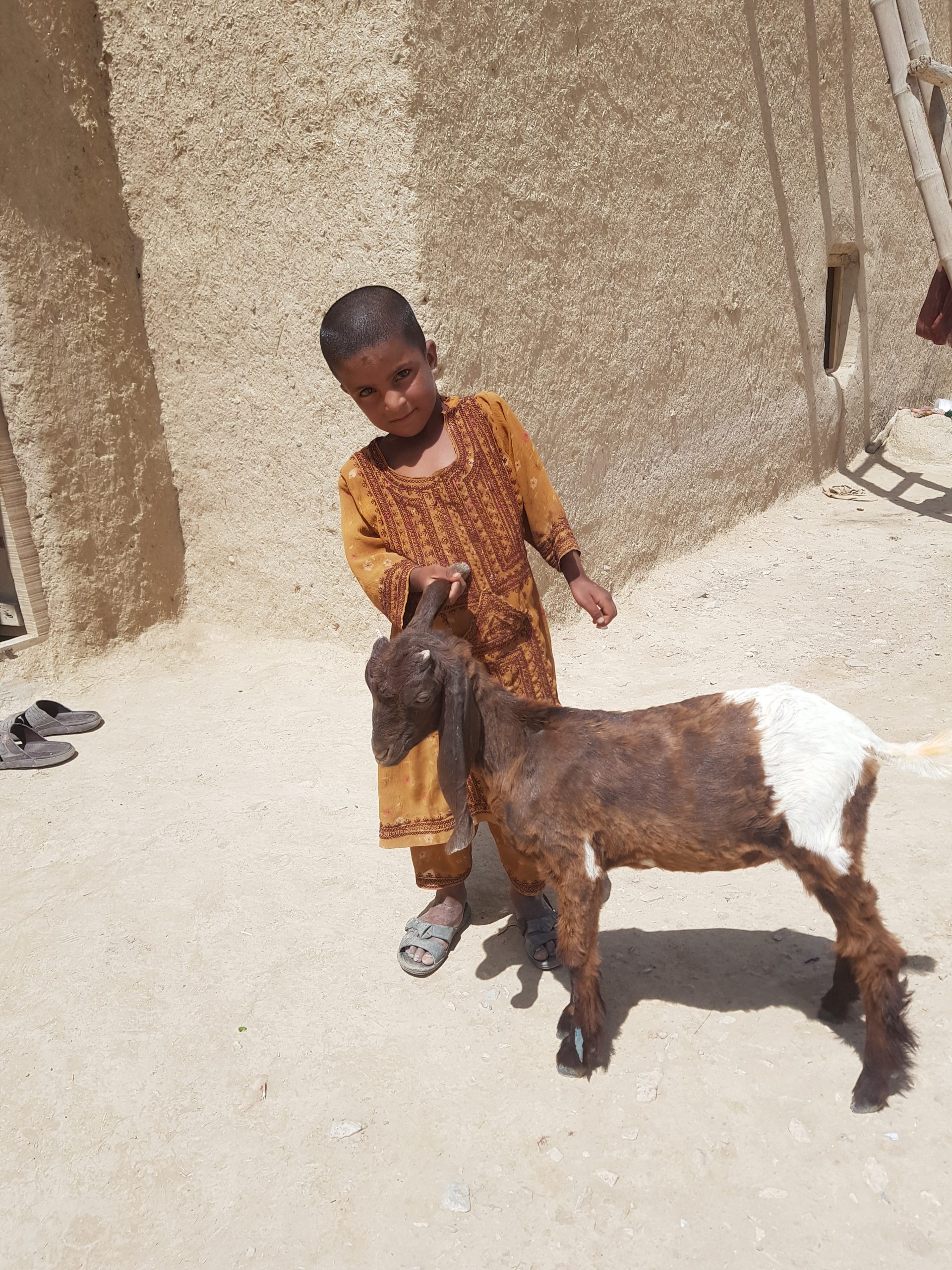
In rural Balochistan where population is sparsely spread-out, initiatives taken by the local community itself are very effective. The government should help build linkages between the local governments and CIs and their leaders to enable an effective and efficient service delivery of polio vaccination for a polio-free Pakistan.
By: Tahira Ali, Savaila and Zahra Rao
We are writing from one of the only two countries in the world, where the wild polio virus remains endemic. As of October 2021, Pakistan and Afghanistan are the only two countries with one case of Wild Polio Virus (WPV1) each. The one polio case to have been reported in Pakistan is in district Killa Abdullah, Balochistan.
In 2020, Balochistan reported 19 out of overall 71 wild polio cases in Pakistan. Although a majority of polio refusal cases come from the Khyber Pakhtunkhwa, Balochistan cannot afford to slacken its efforts at polio eradication. Having been neglected politically and economically these past seven decades, the province’s development, in many ways has been stunted. It suffers from multidimensional poverty (71% of the population in Balochistan is multi-dimensionally poor; rural population is 85% and urban population is 38% multi-dimensionally poor); lack of infrastructure; an extreme water shortage (62 percent of Balochistan is deprived of safe drinking water and more than 58 percent of its land is uncultivable due to water scarcity); dearth of employment opportunities; illiteracy (45% of Balochistan’s population is illiterate), refugee crisis and a history of gender imbalance.
The Polio Eradication Program in Pakistan has been functional since 1994. Its numbers are a testament to its success; polio-positive cases in Pakistan have declined a 99 per cent from the 20,000 cases reported in the early 1990s. However, polio is a highly viral disease and thorough and rigorous preventative action and coverage is needed for it to be eradicated completely and sustainably. Much of Balochistan’s rural population is scattered and difficult to access. Furthermore, Balochistan has a unique set of cultural norms and history which pose challenges to polio-eradication campaigns.
 With such a situation at hand, a group of rural activists has come together to, amongst other things, encourage their local communities to get their children immunized against polio. National Rural Support Program (NRSP) and Balochistan Rural Support Program (BRSP) under the ambit of the European Union funded Balochistan Rural Development and Community Empowerment (BRACE) Program are supporting locals of nine districts of Balochistan to organize themselves into network of local Community Institutions (CIs). These CIs are participatory, self-directed, and democratic bodies and form the Social Pillar to complement the Administrative and Political Pillars of the province. The key features of the Social Pillar are that it has access to each and every household, and is able to mobilize them for common causes. Under the BRACE Program almost 300,000 households are being mobilized into 23,439 Community Organizations (COs), 4,973 Village Organizations (VOs) and 229 Local Support Organizations (LSOs). For polio eradication, it is essential that the network of CIs is engaged.
With such a situation at hand, a group of rural activists has come together to, amongst other things, encourage their local communities to get their children immunized against polio. National Rural Support Program (NRSP) and Balochistan Rural Support Program (BRSP) under the ambit of the European Union funded Balochistan Rural Development and Community Empowerment (BRACE) Program are supporting locals of nine districts of Balochistan to organize themselves into network of local Community Institutions (CIs). These CIs are participatory, self-directed, and democratic bodies and form the Social Pillar to complement the Administrative and Political Pillars of the province. The key features of the Social Pillar are that it has access to each and every household, and is able to mobilize them for common causes. Under the BRACE Program almost 300,000 households are being mobilized into 23,439 Community Organizations (COs), 4,973 Village Organizations (VOs) and 229 Local Support Organizations (LSOs). For polio eradication, it is essential that the network of CIs is engaged.
In October 2019, a Polio Vaccination Officer was facing resistance from multiple households in the village Kamal Zai, a village in district Pishin, Balochistan. The refusing families had two kinds of reasons for refusals; misconceptions of religious nature and issues with the Vaccination Officers. Both of these are rooted in the fear of the unknown.
However, the LSO members challenged this narrative with their agenda of “hakeeki (true) development”, as vocalized by Abdul Hayee, President of LSO Zalan.
“We do not allow outsiders (to the village) into our house”
Within the village, Kamal Zai, there were three households which had refused to get their children immunized. These households comprised eleven families and contributing to the number of children deprived of polio immunization in this cycle was stacking up to be significant. The Union Council Polio Officer, who is also a medical technician informed the LSO president of this concern and requested his support. The UC Polio Officer, LSO President and two members of the LSO Committee met at the local hospital to find solutions to this problem. The group decided that more than anything, it was important to find out the real reason behind the families’ refusal to immunize their children. They visited the relevant households and met with the families. Only the UC Polio Officer and the LSO President were allowed inside the house. A detailed conversation made it clear that the families had issues with the polio vaccinator and not with the vaccine itself. The family members mentioned that they did not appreciate outsiders (to the village) coming to their houses to administer the polio drops. The party took this issue to the District Polio Team who appreciated their efforts and explained their side of the situation: the service could not be decentralized to match each village with a polio worker from their locality, if such a person was even available. However, the LSO leaders could accompany the Polio Officers to the households.
With the issue resolved, the UC Polio Officer, LSO President and other members of the LSO again visited the three refusing households to administer the polio drops. The family head happily agreed to taking a picture as proof of his consent to getting his children immunized and for others to take inspiration from this.
 Does Polio Vaccine render a child infertile?
Does Polio Vaccine render a child infertile?
Having successfully overcome this challenge, the LSO members gained confidence in their ability to communicating with local people who were not allowing their children to be immunized against polio. And so when a month later, they came to know of a household refusing to immunize their children against polio in village Hajazai, they decided to tackle the issue head on. The head of this household believed that polio drops make children abusive and aggressive. Furthermore, there were rumors that the vaccine was part of a family planning campaign and would render their child infertile. The LSO President was well-respected in the village because of his previous ties and philanthropic work carried out in the region; he used this linkage to further build rapport with the household. He explained that he was leading by example and had gotten his three children vaccinated as well. Following a detailed discussion, the head of household allowed the Polio Officer to vaccinate his three children and also convinced his neighbor to get his four children vaccinated.
The essence of Abdul Hayee’s hakeeki (true) development is inclusivity. It is context-based and realizes that development is not about tall buildings but about enabling people to live a better quality of life. This perspective aligns with BRACE Program’s Community Awareness intervention, through which beneficiaries are informed of the importance of health and hygiene, education and vaccinations.
While it is difficult for the government to access each and every household, especially in rural Balochistan where population is sparsely spread-out, initiatives taken by the local community itself under projects like the BRACE Program are very effective. The government should take note of this and help build linkages between the local governments and CIs and their leaders like Abdul Hayee to enable an effective and efficient service delivery of polio vaccination for a polio-free Pakistan.
________________________
Tahira Ali, Savaila and Zahra Rao are Islamabad and Quetta based development professionals. They are on Twitter: @savaila1; @rao_zahra and @TaheeraAli.